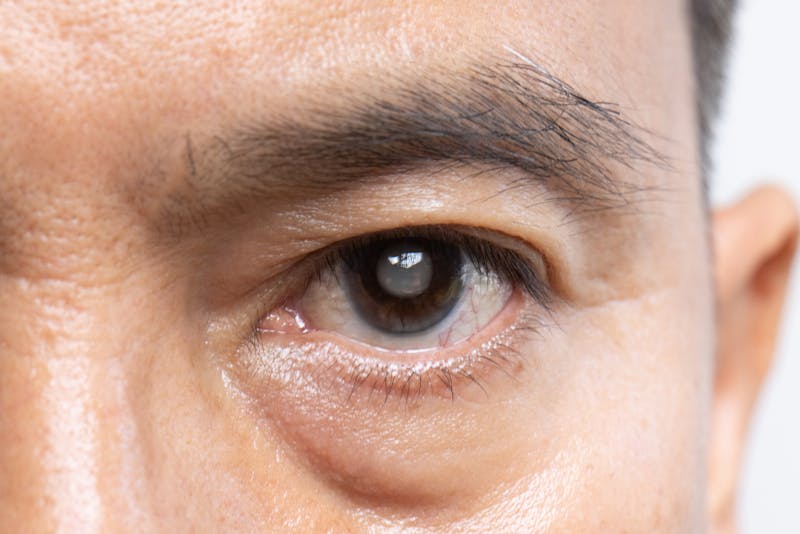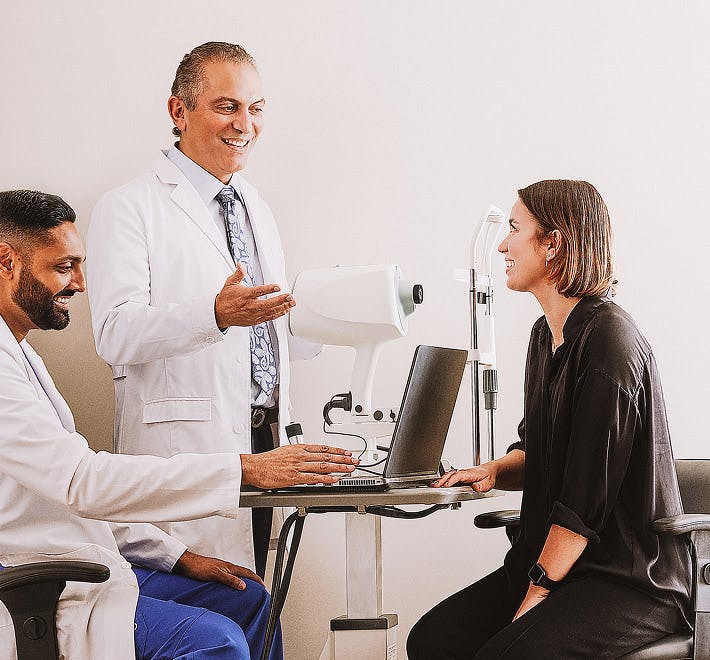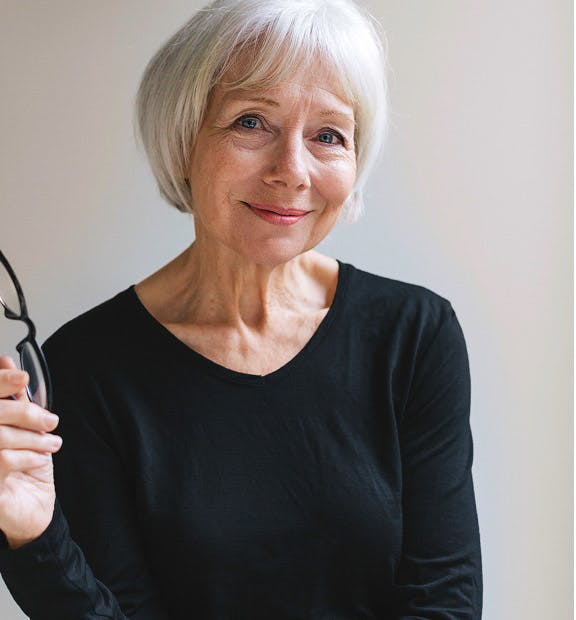Enhancing Your Vision
Guiding you toward the procedure that fits your unique needs, so you can see the world clearly and confidently.

Cataract surgery in New York City has come a long way. Once seen as a standard procedure with a basic outcome, cataract surgery today is more advanced, more customizable, and more life-changing than ever before—especially in a world-class setting like Manhattan.
If you're considering cataract surgery in Manhattan or anywhere in NYC, this article will help you understand your options, choose the right surgeon, and avoid the most common mistakes patients make when they rush into surgery without a plan.
Let’s break it down.
A cataract is the clouding of the natural lens inside your eye. It causes blurry vision, glare, difficulty with night driving, and a dulling of colors over time. Cataracts are extremely common, especially after age 60.
Cataract surgery is a short, outpatient procedure where the cloudy lens is removed and replaced with a clear artificial lens called an intraocular lens, or IOL.
But here’s what many patients don’t realize:
Cataract surgery is no longer “one size fits all.”
In fact, if you're getting cataract surgery in New York City—especially in Manhattan—you’re going to be presented with a range of options that can dramatically affect your vision and your lifestyle.
When you meet with a top cataract surgeon in Manhattan, you’ll likely be guided through a personalized decision-making process that includes:
This is the standard option. It gives you clear vision at one distance—usually far. You’ll still need reading glasses. This lens is covered by Medicare and most insurance plans.
Who it’s for: Patients who are comfortable wearing glasses and want the most affordable route.
If you have astigmatism, a toric lens can correct it during surgery. This results in sharper vision without glasses for distance.
Who it’s for: Patients with moderate to high astigmatism who want to reduce or eliminate the need for glasses at a distance.
These advanced lenses allow for clear vision at multiple distances—near, far, and intermediate.
Multifocal lenses split the light to allow focus at different points. EDOF (Extended Depth of Focus) lenses, like the AcrySof IQ Vivity, stretch the focal range without splitting light, which may reduce halos and glare at night.
Who it’s for: Patients who want maximum independence from glasses and understand that every lens has pros and cons.
In monovision, one eye is corrected for distance and the other for near. It’s an older technique, but it works well for some patients. If you’ve worn monovision contacts and tolerated them, this could be a good choice.
New York is home to hundreds of cataract surgeons—but not all offer the same technology, experience, or personalized attention.
Here’s what to look for:
Preferably, your surgeon should be a cornea specialist. Cataract surgery is performed on the lens, but the cornea is the structure we must pass through. A cornea-trained surgeon is best equipped to ensure safety and optimal healing. Make sure the surgeon is well experienced with premium lens surgeries and with laser cataract surgery if that is what you need. Experienced surgeons often perform at least 60% of their cases with premium lenses.
Many budget-focused clinics in NYC offer only basic monofocal lenses or have limited premium options. If you want access to toric, multifocal, or EDOF lenses, confirm this upfront.
Premium cataract surgery requires extremely accurate eye measurements. The best cataract surgeons in Manhattan use multiple devices (such as IOLMaster, Lenstar, corneal topography, ultrasound biometry, and corneal mapping) to triangulate the most accurate lens power possible. Dr. Cohen uses a proprietary method called Realsight™ for this purpose.
Find a surgeon who has performed tens of thousands of cataract surgeries. Ask how many complex cases they’ve handled, especially if you have glaucoma, macular degeneration, or previous eye surgery.
One of the most common questions in NYC is: Do I need laser cataract surgery?
Laser-assisted cataract surgery uses a femtosecond laser to make incisions and soften the cataract before it’s removed. It’s more precise than manual surgery, though not always necessary.
Ask your surgeon whether laser assistance would offer a meaningful advantage in your case.
For patients traveling to Manhattan for cataract surgery—or for busy professionals—same-day bilateral surgery (doing both eyes on the same day) can be a major advantage.
While traditionally done one eye at a time, same-day surgery is increasingly offered in top practices in New York City when:
Not all practices offer this, and not all insurances cover both eyes the same day. Be sure to ask in advance.
In most NYC practices, no general anesthesia is required.
Instead, cataract surgery is done with IV sedation and numbing drops. You’re awake but relaxed. There’s no breathing tube, no pain, and no memory of the procedure in most cases.
Basic cataract surgery (with a monofocal lens) is covered by Medicare and most insurances. However, premium lens upgrades and laser-assisted options come with out-of-pocket fees.
Typical Upgrade Costs in NYC (2025):
Toric, Multifocal / EDOF Lens: $2,500–$4,000 per eye
Laser-Assisted Surgery: $1,000–$2,500 per eye
It’s important to weigh value—not just price. Your choice today will affect how you see for the next 20+ years.
Undergoing cataract surgery in Manhattan often means you’re getting:
But New York City also has a wide range of clinic types—from high-volume insurance mills to boutique premium practices. Choose the one that fits your goals and values.
Whether you’re getting cataract surgery in NYC or anywhere else, ask your surgeon:
Cataract surgery in New York City is not a one-size-fits-all procedure. With access to the best surgeons, the most advanced lenses, and the latest technologies, you have the opportunity to restore your vision—and transform how you live.
But choosing the right lens, the right surgeon, and the right strategy matters.
Whether you live in Manhattan or are traveling to NYC for cataract surgery, take the time to explore your options.
Because when it comes to your eyes—you only want to do this once. And you want to do it right.
Dr. Ilan Cohen is a board-certified ophthalmologist, cornea specialist, and one of New York’s most experienced cataract surgeons, with over 80,000 successful surgeries. His Manhattan office offers advanced diagnostics, premium lens options, and a personalized, pressure-free consultation.
Guiding you toward the procedure that fits your unique needs, so you can see the world clearly and confidently.




If you do not see your preferred date and time please call the office, so we can accommodate your request (917) 398-4011.